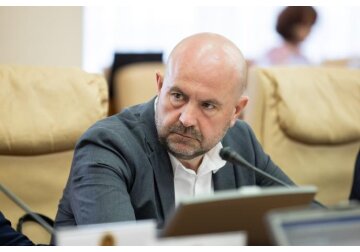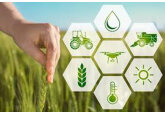
In Moldova, conditions will be created to support family agricultural businesses and peasant farms whose activities have gone beyond the scope of the family business will be obliged to switch to other organizational and legal forms.
The Ministry of Agriculture announced this, noting that this is provided for by legislative amendments approved by the Cabinet of Ministers, which change the conditions for business activities of peasant farms. They stipulate that peasant farms whose activities have gone beyond the scope of family business will have to move to other organizational and legal forms. The bill will establish limits on the area of land and the number of animals for business activities in the form of a peasant farm. “The concept of peasant farming is based on the idea of developing a business in agriculture based on the personal labor of family members. To support them, regulations provide for such benefits as a reduced income tax rate, a simplified accounting regime and preferential social contributions compared to other forms of entrepreneurship. However, as a result of the analysis, it was found that about 8% of peasant farms own land with an area of more than 150 hectares, and there are farms with a land area of more than 10 thousand hectares. Ownership of such plots of land indirectly indicates that they have gone beyond the scope of entrepreneurial activity, which uses the labor of family members, and does not require special protection from the state,” said Vladimir Bolea, Minister of Agriculture and Food Industry. According to him, despite the fact that the Law on Peasant Farms establishes as a condition for conducting activities in this form the preferential use (more than 50%) of the personal labor of its members, while at the same time obliging them to stop activities if this limit is exceeded, in practice it turns out to be impossible to assess, what is the share of personal labor of household members in relation to the labor of other workers. Moreover, the large gap between peasant farms in terms of property area affects the effectiveness of government policies to support these forms of agricultural organization. To solve the identified problems, it is proposed to replace the criterion of “using the labor of members of the peasant household” by establishing some restrictions on the area of land and the number of animals that a peasant farm can own. Plots owned or used by a peasant farm can be easily verified through the Real Estate Register and the Register of Lease Agreements, and animals through the Animal Register. As the head of the Ministry of Agriculture noted, limiting the possibility of peasant farms owning and using land and animals exceeding a certain area or number is aimed at preserving this form of legal organization of agriculture for family businesses. Vladimir Bolea emphasized that the features of a family farm are not characteristic of large commercial companies whose goal is to make a profit from the exploitation of land and animals. Without setting any restrictions, peasant farms will profit more and more, gradually destroying the characteristics of the family farm. As a result, the Ministry of Agriculture proposed the transition of peasant farms, whose activities went beyond the scope of family business, to other organizational and legal forms. // 22.11.2023 — InfoMarket.







